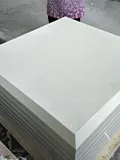loading...
- No. 9, Xingyuan South Street, Dongwaihuan Road, Zaoqiang County, Hengshui, Hebei, China
- admin@zjcomposites.com
- +86 15097380338
- Welcome to visit our website!
Innovative Applications and Advantages of Molded Fiber Reinforced Plastic in Modern Industries and Construction
Molded FRP A Revolution in Material Technology
Molded Fiber Reinforced Polymer (FRP) is a cutting-edge composite material that has sparked interest across various industries due to its remarkable properties and versatility. The combination of fiberglass with a polymer matrix results in a material that boasts excellent strength-to-weight ratios, resistance to corrosion, and superior durability. These characteristics make molded FRP a preferred choice for applications in construction, automotive, aerospace, and marine sectors.
Molded FRP A Revolution in Material Technology
Another noteworthy attribute of molded FRP is its exceptional resistance to environmental factors. Unlike metals that tend to rust and degrade when exposed to moisture or chemicals, molded FRP is inherently resistant to corrosion. This quality extends the lifespan of products made from molded FRP, resulting in lower maintenance costs and reduced need for replacement. Industries such as marine and chemical processing particularly benefit from this property, where exposure to harsh environments is a daily reality.
molded frp

Molded FRP also offers significant design flexibility. The material can be molded into intricate shapes and forms, allowing for the creation of complex components that may not be possible with conventional materials. This capability opens up new avenues for innovation in design, enabling engineers and designers to think outside the box and create solutions that are both functional and aesthetically pleasing. Whether it’s intricate architectural features or lightweight, aerodynamically efficient shapes in automotive design, molded FRP provides the tools necessary to realize these visions.
Moreover, the manufacturing process of molded FRP can also be more environmentally friendly compared to traditional material processes. With advancements in production techniques, manufacturers are finding ways to minimize waste and energy consumption while also utilizing recycled materials in the production of molded FRP. This shift towards more sustainable practices aligns with the growing demand for eco-friendly materials, making molded FRP an attractive option for environmentally conscious companies.
Despite these advantages, it’s important to acknowledge some challenges associated with molded FRP. Cost can be a barrier for some applications, as the initial investment in production and materials may be higher than traditional options. Additionally, while molded FRP is incredibly durable, it can have limitations concerning impact resistance and thermal performance compared to metals or other composites.
In conclusion, molded Fiber Reinforced Polymer represents a significant advancement in material technology. With its lightweight nature, exceptional resistance to environmental factors, design flexibility, and potential for sustainable production, molded FRP is carving out a prominent role across numerous industries. As technology continues to evolve and manufacturing processes improve, the adoption of molded FRP is likely to increase, paving the way for innovative solutions that meet the demands of the modern world. Whether in construction, automotive design, or specialty applications, molded FRP is undoubtedly shaping the future of material science and engineering.
-
Premium FRP Handrail for All ApplicationsNewsAug.29,2025
-
Low Maintenance FRP Mini Mesh Grating ProductsNewsAug.29,2025
-
Innovative FRP Square Tubes for Modern Industrial SolutionsNewsAug.29,2025
-
FRP Water Storage Tanks Wholesale Solutions for Bulk BuyersNewsAug.29,2025
-
FRP Molded Grating Solutions for Diverse Industrial ApplicationsNewsAug.29,2025
-
Construction Advancements Through FRP Pultruded ProfilesNewsAug.29,2025
-
Why Choose FRP Railings, Guardrails, and Handrail Systems?NewsAug.29,2025
